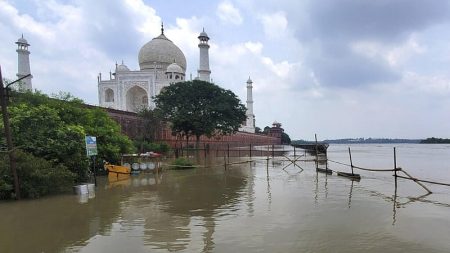Dengue Fever Outbreak in Edo State: A Comprehensive Overview
The Edo State Ministry of Health has recently confirmed an outbreak of dengue fever, a mosquito-borne viral illness, with 86 reported cases across the state. Dengue fever, transmitted primarily through the bite of the Aedes aegypti mosquito, poses a significant public health concern, particularly in areas with inadequate sanitation and stagnant water, which serve as ideal breeding grounds for the vector. Recognizing the urgency of the situation, the state government, under the leadership of Governor Monday Okpebholo, has initiated a comprehensive response plan to contain the outbreak and protect residents. This plan encompasses enhanced surveillance, effective case management, targeted vector control measures, and improved environmental sanitation across affected areas. Dr. Cyril Oshiomhole, the Commissioner for Health, has appointed Dr. Stephenson Ojiefoh, the Director of Public Health, as the incident manager to oversee the implementation of these strategies.
The Edo State government’s response to the dengue fever outbreak reflects a multi-pronged approach. Surveillance efforts have been intensified to identify and track new cases, allowing for prompt intervention and preventing further spread. Case management protocols have been established to ensure that infected individuals receive appropriate medical care, thereby reducing the severity of the illness and minimizing the risk of complications. Vector control measures, crucial in combating the spread of dengue fever, are being implemented to reduce mosquito populations. These measures include the elimination of mosquito breeding sites, the use of insecticides, and the promotion of personal protective measures such as mosquito nets and repellents. Furthermore, the government is prioritizing environmental sanitation to eliminate stagnant water and other potential breeding grounds, thereby disrupting the mosquito life cycle.
The collaborative efforts of various stakeholders are instrumental in addressing the dengue fever outbreak. The Edo State Ministry of Health is working closely with the Nigeria Centre for Disease Control (NCDC), the State Disease Surveillance Team, the Centre for Disease Control, and other key partners. This collaborative approach ensures a coordinated and effective response, leveraging the expertise and resources of multiple organizations. Healthcare workers across the state have been placed on high alert and are instructed to promptly report any suspected cases of dengue fever, facilitating early diagnosis and treatment. Public awareness campaigns are also being conducted to educate residents about the disease, its transmission, and preventive measures.
Beyond dengue fever, Edo State faces the challenge of managing other infectious diseases. The state has recorded 137 confirmed cases of Lassa fever, resulting in 24 deaths. Lassa fever, a viral hemorrhagic fever, poses a significant threat to public health, requiring intensive control measures to prevent further transmission. Two confirmed cases of Yellow Fever have been reported, with one fatality. Yellow Fever, another mosquito-borne viral illness, can cause severe complications and requires vaccination for prevention. Eight confirmed cases of Monkeypox (Npox) have been identified, although no deaths have been reported. Monkeypox, a viral zoonotic disease, has been a focus of public health concern in recent years. Additionally, eight confirmed cases of diphtheria, a bacterial infection primarily affecting the nose and throat, have been recorded, leading to three deaths. The resurgence of diphtheria highlights the importance of vaccination and prompt medical attention.
The Edo State Ministry of Health remains vigilant in its efforts to control these outbreaks. The comprehensive response plan for dengue fever serves as a model for addressing other infectious diseases. The government’s proactive approach, combined with the collaborative efforts of various stakeholders, is crucial in safeguarding public health and preventing further spread of these diseases. Continuously monitoring the situation, implementing effective control measures, and educating the public are essential steps in mitigating the impact of these outbreaks and protecting the health of Edo State residents.
The current outbreaks in Edo State underscore the importance of strengthening public health infrastructure and investing in disease surveillance and control programs. Early detection and rapid response are crucial in containing outbreaks and minimizing their impact. Maintaining a high level of public awareness and promoting preventive measures are essential for protecting individuals and communities from these diseases. The collaborative efforts of government agencies, healthcare professionals, and community members are vital in addressing these public health challenges and ensuring the well-being of the population.














